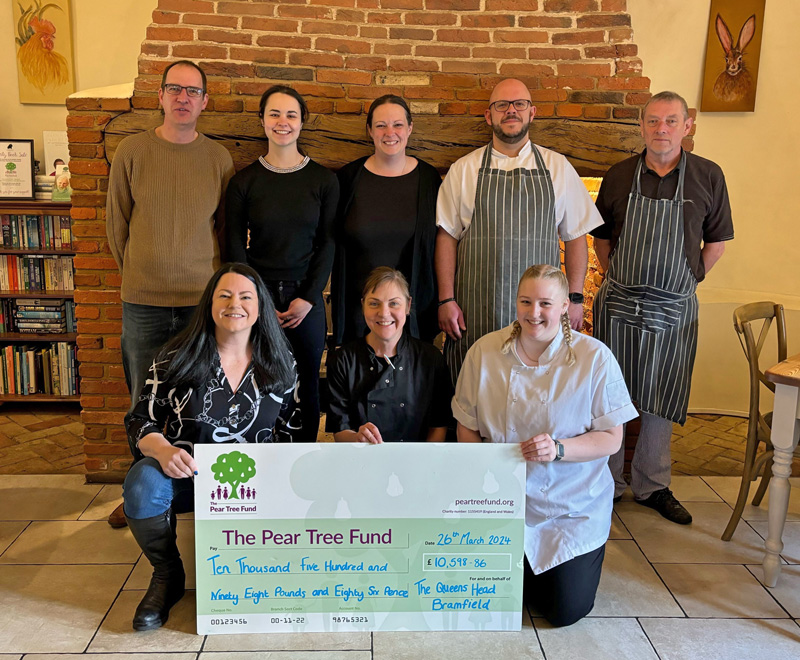 Cancer Prevention Week 2010:
Cancer Prevention Week 2010:
NHS Norfolk promotes a healthy lifestyle to help prevent cancer
NHS Norfolk is stressing the importance of a healthy lifestyle – including keeping active and eating at least five portions of fruit and vegetables a day – to help prevent about a third of the most common cancers.
The call comes at the beginning of Cancer Prevention Week 2010 – organised by the World Cancer Research Fund.
Although there is no “cure all” NHS Norfolk is keen to emphasise the following:
* Healthy eating
* Exercise
* Taking up screening when invited
Jonathan Williams, NHS Norfolk’s Assistant Director of Public Health, said: “Exercise and eating five portions of fruit and vegetables per day is known to improve health in general. This includes the prevention of long-term conditions such as heart disease and diabetes, as well as cancer.
“It is essential that people are able to recognise the risks so they can make informed decisions about their lifestyle.
“I urge people to be mindful of the potential causes of cancer and to seek a medical opinion if they develop symptoms which could indicate cancer.
“Part of your defence against cancer is to take advantage of the National Breast, Bowel and Cervical Cancer Screening Programmes available to certain age groups which are commissioned by NHS Norfolk. These screening tests can identify potential problems before they develop into cancer.”
Earlier this year, the Anglia Cancer Awareness Survey, commissioned by the NHS Anglia Cancer Network, showed that some people living in NHS Norfolk’s area cannot recognise some symptoms of cancer.
While most people agreed that a lump or a change in the appearance of a mole, could be a sign of cancer, only 73% of people knew that an unexplained loss of weight could be a symptom. Just 63% knew persistent trouble with swallowing could be a potential symptom.
Most knew that smoking could increase the risk of cancer, but only 8% of respondents in NHS Norfolk’s area cited being overweight as a risk. Most people knew about the breast screening and cervical screening programme, but less than half were aware of the NHS Bowel Screening Programme.
There are breast, cervical and bowel cancer screening programmes in Norfolk. Those eligible for screening programmes should automatically receive a letter. But in order to do so, they must be registered with a GP and ensure that their surgery has their current contact details.
Fiona Kelly, Screening Programmes Lead at NHS Norfolk, said: “When you receive an invitation for screening, please, please do something about it – talk to your GP surgery, ask for translations, navigate to the websites for more information, seek advice and assistance from carers if necessary … but, do not ignore invitations. Make sure that you have an informed yes or no decision and remember, your views may change sometime in the future.”
These days, ‘modern life’ can mean that we’re a lot less active. With so many opportunities to watch TV or play computer games, and with so much convenience and fast food available, we don’t move about as much, or eat as well as we used to.
Hannah Critten, NHS Norfolk’s Healthy Weight, Healthy Lives Co-ordinator, said: “Research has shown that an average of one in three of our Norfolk children today could grow up with dangerous amounts of fat in their bodies. This can cause life-threatening diseases like cancer, type 2 diabetes and heart disease.”
NHS Norfolk has developed a number of initiatives to encourage people of all ages to lead a more healthy lifestyle. Several of them are aimed at children – to encourage people to eat healthily and take exercise at an early age.
They include the Sporty Tots and MEND (Mind, Exercise, Nutrition, Do-it) programmes for children, which are delivered by Football in the Community on behalf of NHS Norfolk.
Being overweight isn’t just about the way we look. It can lead to more aches and pains, problems sleeping and people report a loss of energy and confidence.
Take the first step towards getting yourself or your children eating well, moving more and living longer just by registering with the Change4life movement at www.change4life.co.uk
To encourage people to eat more healthily, NHS Norfolk runs the Joy of Food, a community-based programme funded by the Big Lottery, which increases fruit and vegetable consumption by teaching basic food skills and raising awareness of the social pleasure of food.
Caroline Seaman, NHS Norfolk’s Joy of Food lead said: “British grown fruit and vegetables will soon be coming in to season, and there’s no better time to aim for your five-a-day. Fruit and vegetables contain a range of vitamins and minerals to enhance your health – and the nutrients in everyday food like carrots and apples can be just as important as those found in exotic foods like sweet potatoes and papaya.”
Cancer Prevention Week aims to promote healthy lifestyle choices that can prevent up to a third of the most common cancers, including healthy eating, physical activity and maintaining a healthy weight. For more details visit the World Cancer Research Fund website at www.wcrf-uk.org
For more details on NHS Norfolk’s Joy of Food, call 01603 257219.
To find out more about other activities and initiatives across the NHS Norfolk locality which can support you to lead an active, healthy lifestyle, call the NHS Norfolk Patient Advice and Liaison Service (PALS) on 0800 587 4132.
For more information about these services and others log on to the NHS Norfolk HERON website at www.heron.nhs.uk








